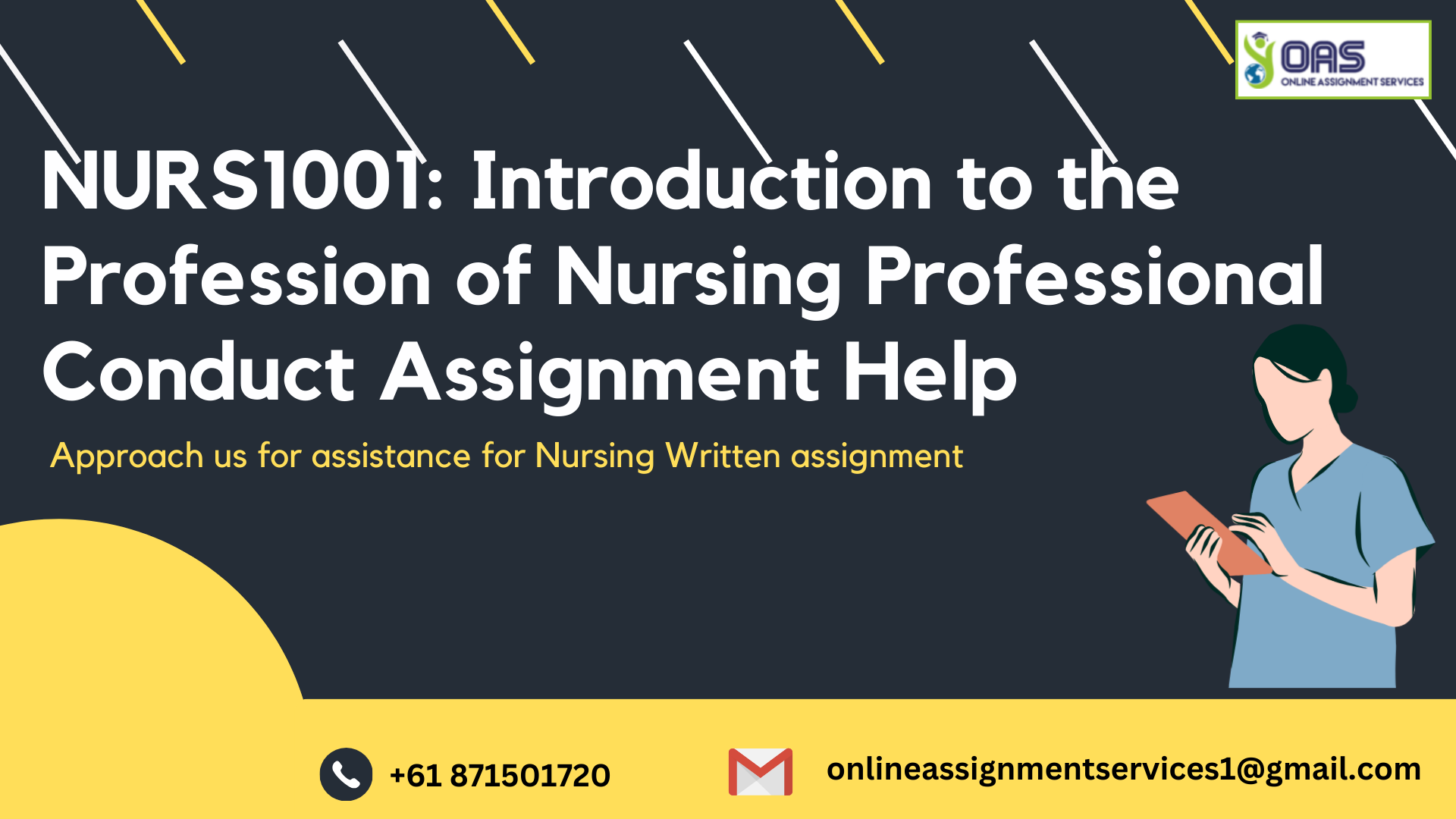NURS1001: Introduction to the Profession of Nursing Professional Conduct Assignment Help

Question
NURS1001: This written assessment for the University of Newcastle Australia requires the student to demonstrate their learnings related to module 2 of the Introduction to the Profession of Nursing Course. The assignment consists of two parts- Part A and Part B. Part A is based on the readings and questions provided in the task file related to the Code of Ethics of professional Nursing practice. Part B demands the student to respond to a case study and demonstrate their learning related to the Ethical principles of Nursing.
Solution
The solution incorporates a written assignment addressing all the questions based on a thorough analysis of the readings provided in the task file. The solution prepared by our experts demonstrates an in-depth knowledge of the professional standards and ethical principles important for nursing practice.
Part A- The Code of Conduct
In this first section of this assignment, the student is required to demonstrate their understanding of the national code of Conduct and how these relate to the practical experience of a nursing professional.
Question 1
The first question requires the student to elaborate on the aim of the Nursing and Midwifery Board of Australia’s Code of Conduct for Nurses. Our experts have highlighted the significance of this professional framework holds in the nursing profession.
The Australian Code of Conduct for Nurses outlines the ethical standards, professional conduct, and legal obligations for the nursing profession. The code specifies essential self-regulatory etiquette for nursing students (Cowin et al., 2019). The purpose of NMBA (2018) code of conduct is to enlighten and direct nursing students about the standards of conduct that should be followed in their routine medical duties. For instance, NMBA (2018) code of conduct states that nursing professional have a responsibility to protect the confidentiality of their patients. As a result, nursing students should learn not to share patient information without first obtaining their written consent (Johnstone, 2022). The legal obligations, professional behaviour, and conduct anticipated by the nursing profession are laid forth in a code of conduct, which serves as an ethical framework for nursing students (Cowin et al., 2019).
If you are looking for Professional Nursing Assignment Help, WhatsApp us at +447956859420.
The next three questions are based on a case scenario provided in the task file. The case revolves around a nursing student named Morgan, who has accepted a monetary loan from one of his patients as he faced a financial situation in his personal life.
Question 2
In this question, the student is required to identify the “Domain, Principle, and Sub-Principle” from the Code of Conduct that applies to this circumstance the most. Through expert knowledge related to professional nursing standards, our experts demonstrate a comprehensive understanding of the principle.
The most appropriate domain according to the given case study is Act with professional integrity.
This is only a snippet of the complete answer. To know more, call us at +61 871501720.

Question 3
In this question, our experts have remarked on the sub-principle and discussed its significance to Morgan’s circumstances. Our experts have also incorporated details from the Domain and Principle.
According to the sub-principle 4.5 about financial arrangements and gifts, nursing students should understand the significance of being truthful and transparent with their patients, and should make sure that there is no insight of personal or financial gain for a nurse during the course of patient care (NMBA, 2018). Nursing professionals are not supposed to agree to, advocate, or manipulate proposals that will either personally or financially favour them. Additionally, nurses should avoid any financial ties, such as loans, gifts, powers of attorney, and investment arrangements, with an individual that has received or will receive their medical care (NMBA, 2018). In the given case study, Morgan unintentionally got involved with the patient beyond professional boundary when Morgan disclosed information about personal finances to the patient and the patient offered $100 as a reward to Morgan.
Need Working in Nursing Profession Assignment Sample? You are at the right place, reach out to us at onlineassignmentservices1@gmail.com.
Question 4
Through a critical analysis of the case study based on the professional Code of Conduct done by our experts, the behaviors Morgan exhibited that were consistent with the code of conduct and the behaviors that violated it are presented here.
According to the sub-principle of financial arrangements and gifts, at first Morgan did not accept or encourage the patient to lend money, which reflected the code of conduct.
Were you looking for Introduction to the Profession of Nursing Professional Conduct Assignment Help? Look no more, call us at +61 871501720 today!
Part B- Exploring Ethical Principles
This section of the assignment is based on a case study provided to the student, along with one reading. The student is required to analyze the case study in correspondence to the reading which is based on the covert administration of medication in food. The case presents a scenario of a nursing student Riley, who has recently been made aware of the fact that one of the patients is been served medications through a jam without the patient’s consent for the medication.
Question 5
In this last question, the student is supposed to identify the most relevant ethical principle and examine it concerning the delivery of covert medication. The consequences of violating this principle are also discussed by our experts in this question.
The most appropriate ethical principle relevant to this case study is autonomy. The term “autonomy” refers to the patient’s ability to make independent choices about the treatment they receive (Pietilä, 2021). The practise of concealing medicine in drinks or food and giving it to a patient either knowingly or unknowingly is known as covert medication administration (Garratt et al., 2021). Medication cannot be forced on a patient by a healthcare provider. The patient’s inability to make an independent judgement in case of mental health issues is the only exception. Every person who is of legal age and in good mental and physical health has the freedom to decide what should be done with their body (Varkey, 2021). Therefore, for intellectually capable patients, it is crucial to consider their autonomy during their healthcare. Autonomy is important since it ensures that the individual receiving care actively participates in their medical care rather than simply deferring to their physician (Varkey, 2021). With respect to patient’s autonomy, covert administration of medicines breaches the patient’s autonomy as it involves concealing or hiding medicine by the professionals.
Get a Working in Nursing Profession Assignment Sample at discounted prices. WhatsApp us today- +447956859420.

